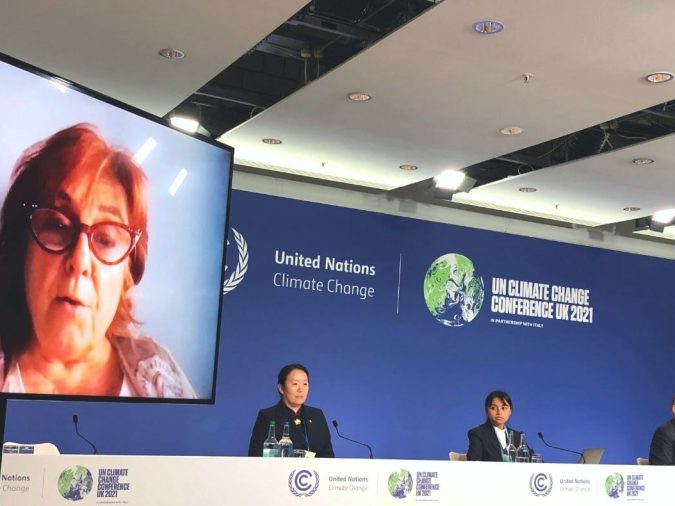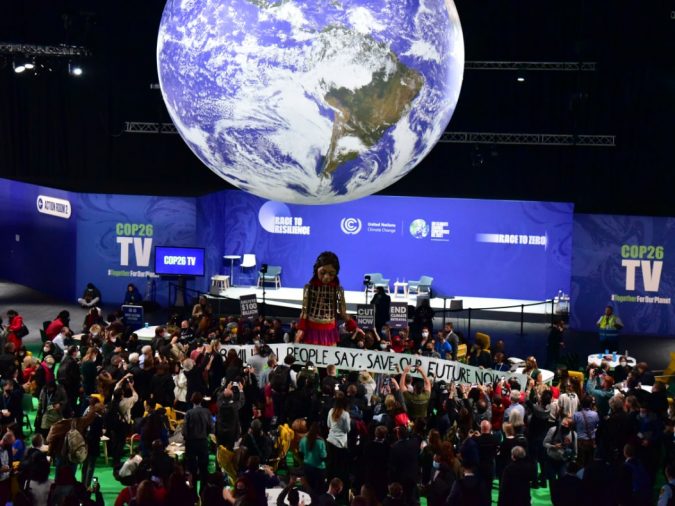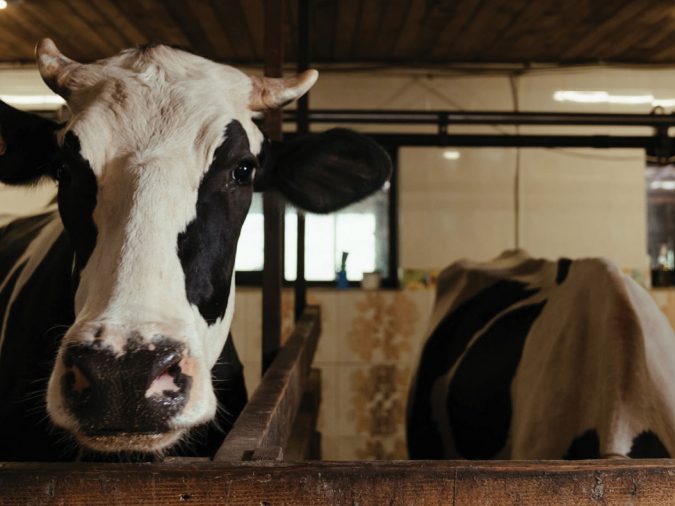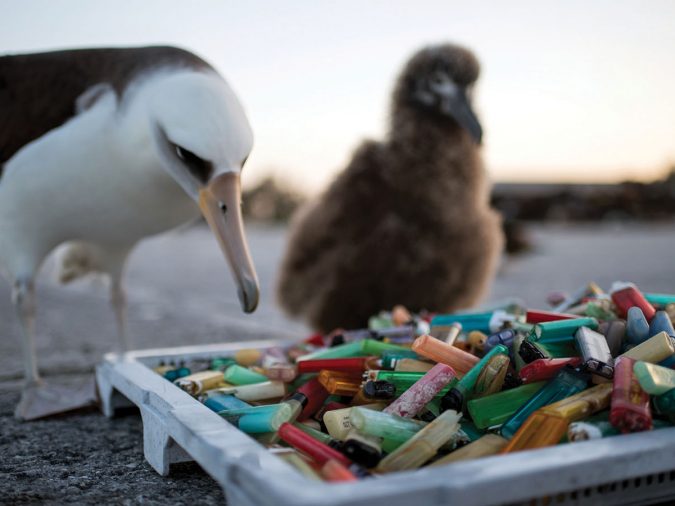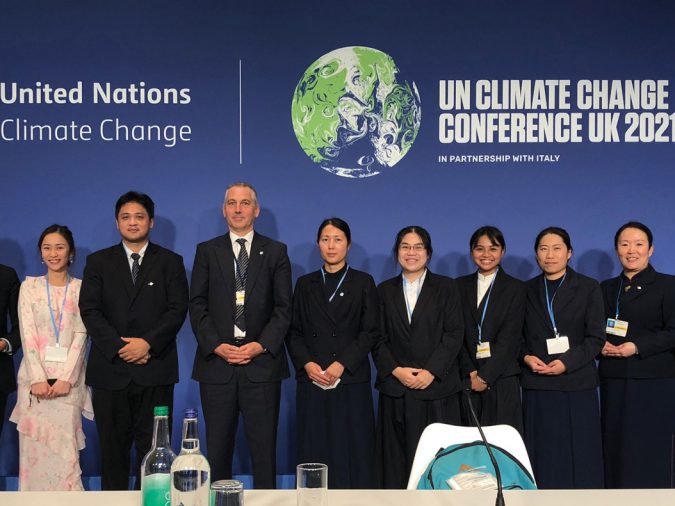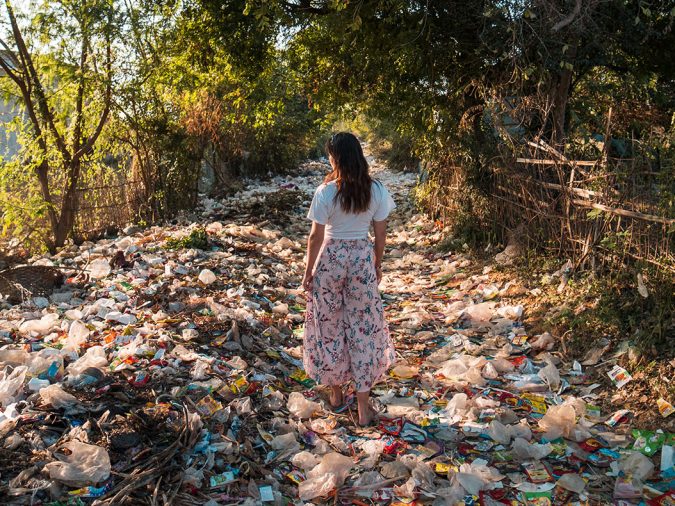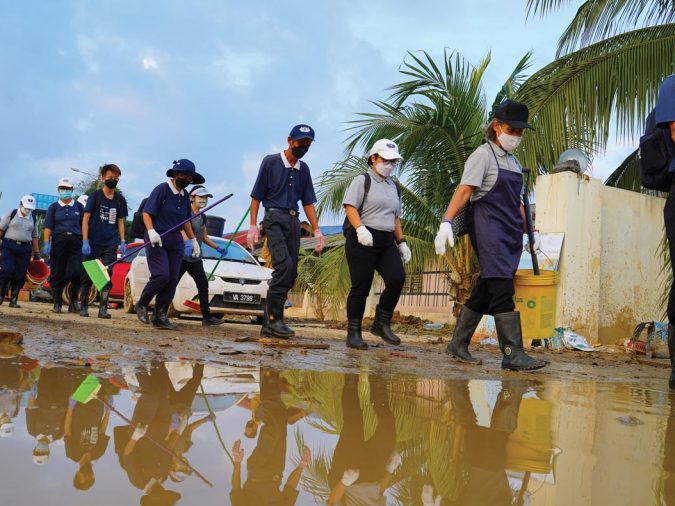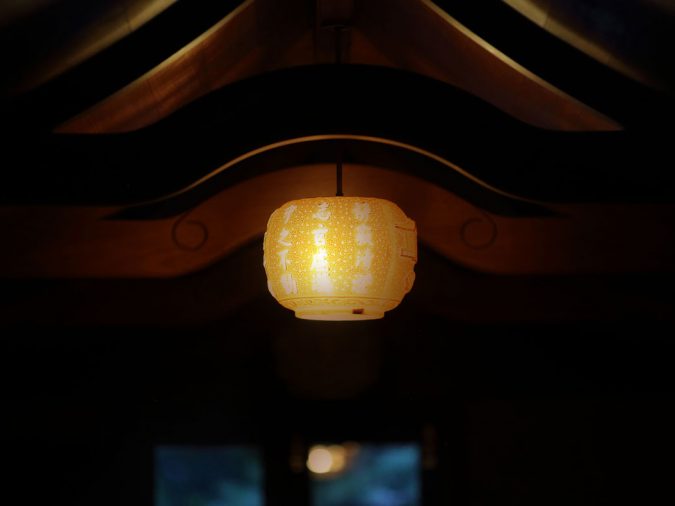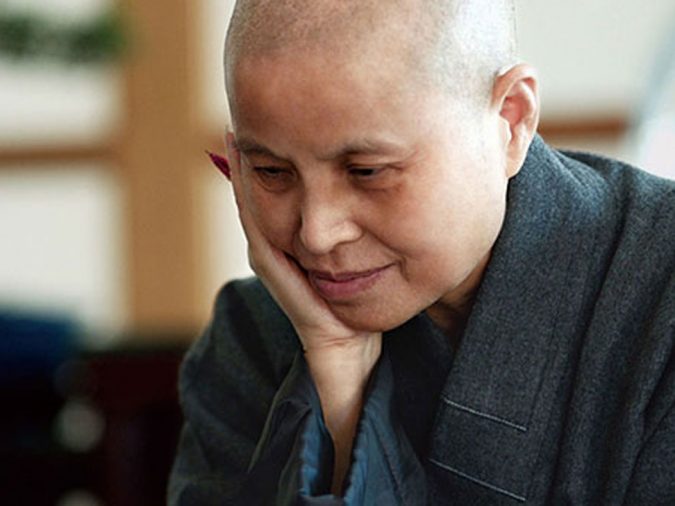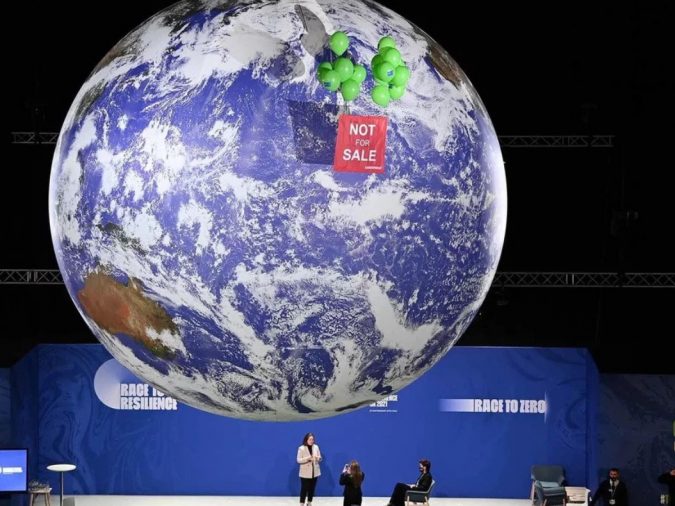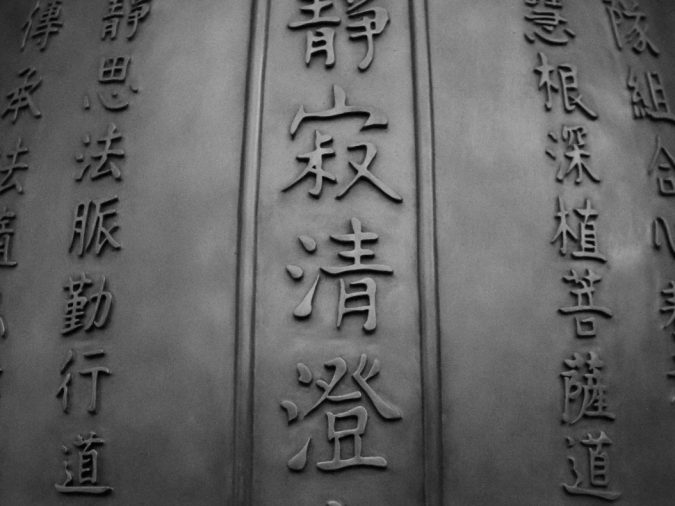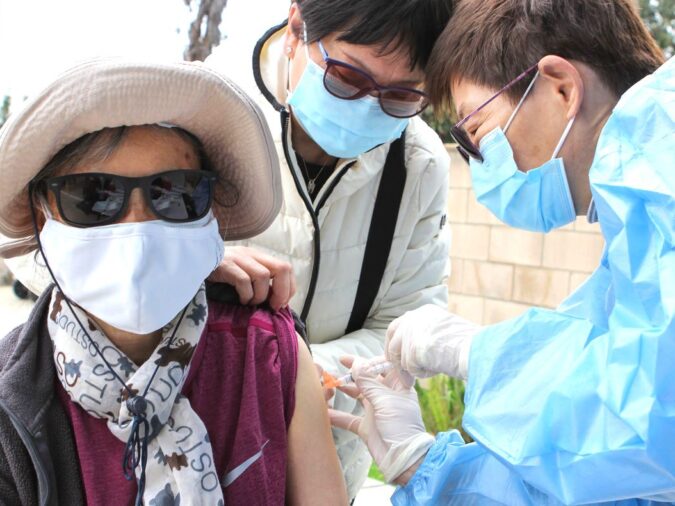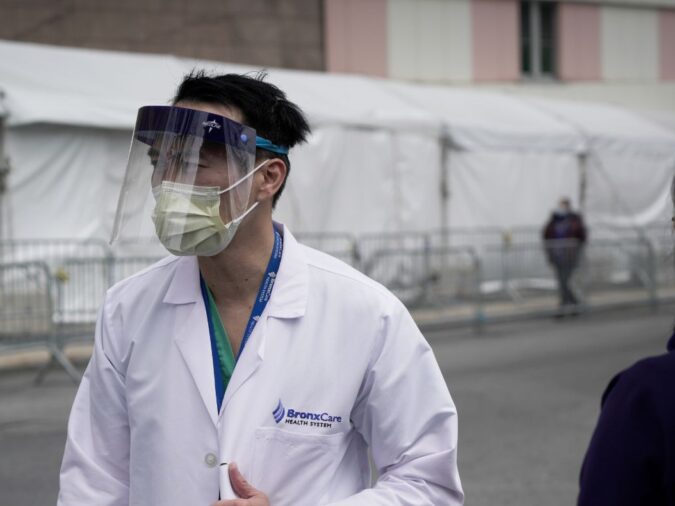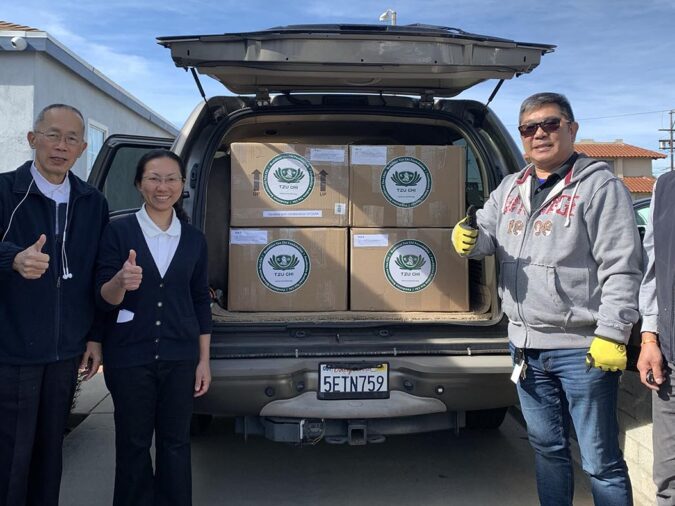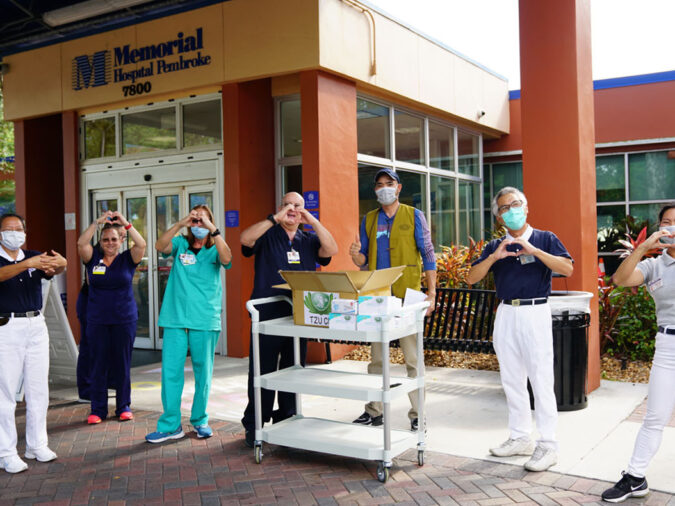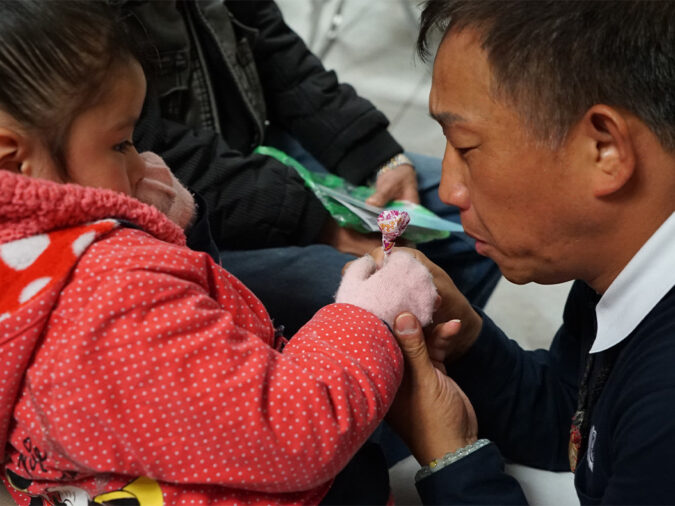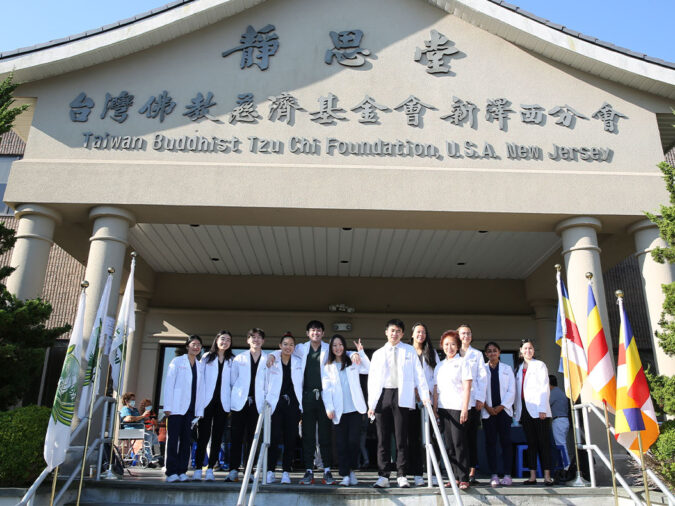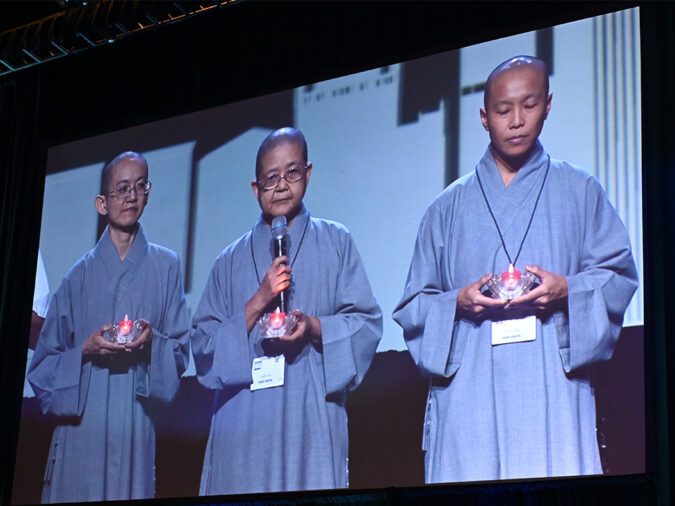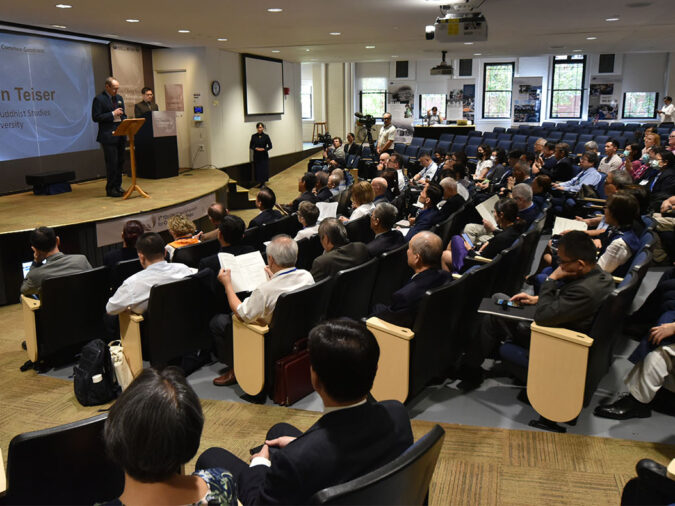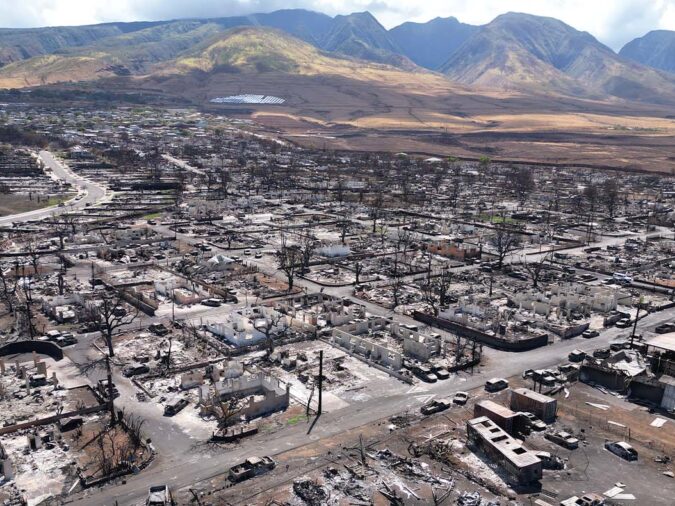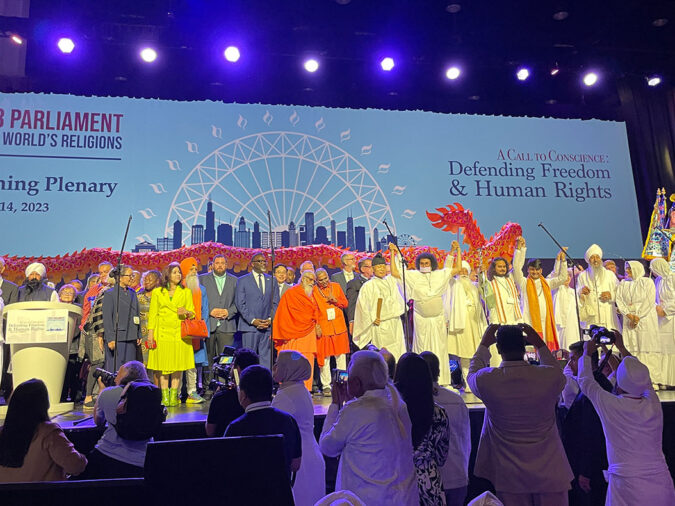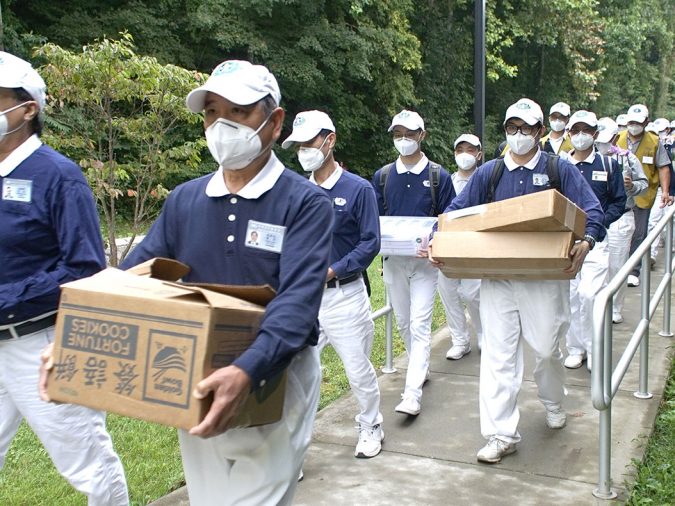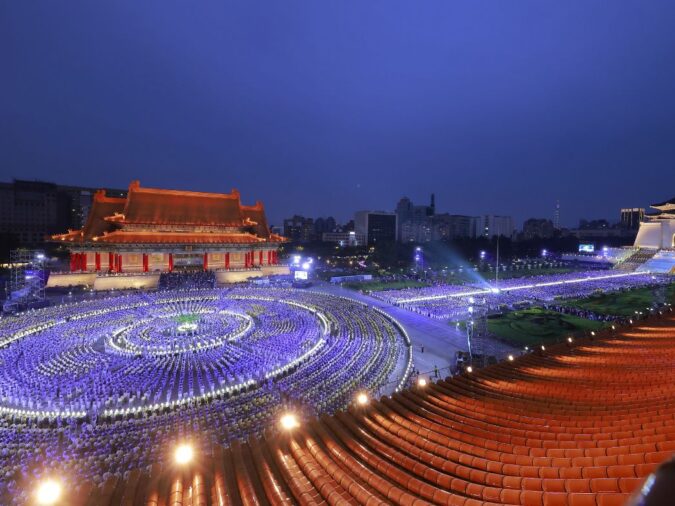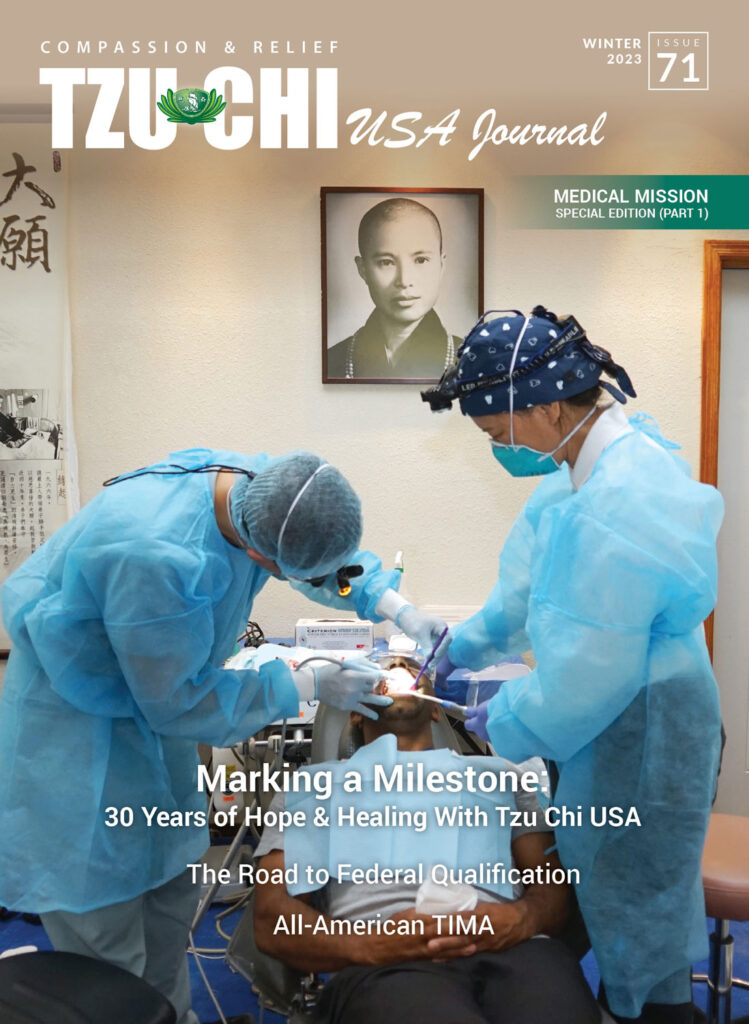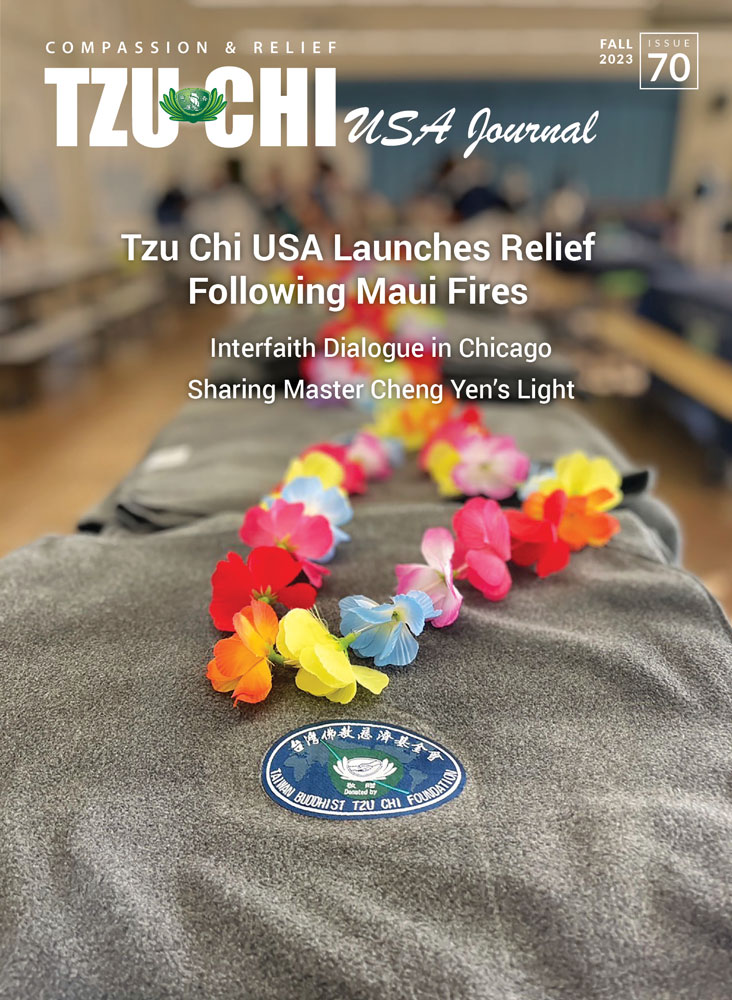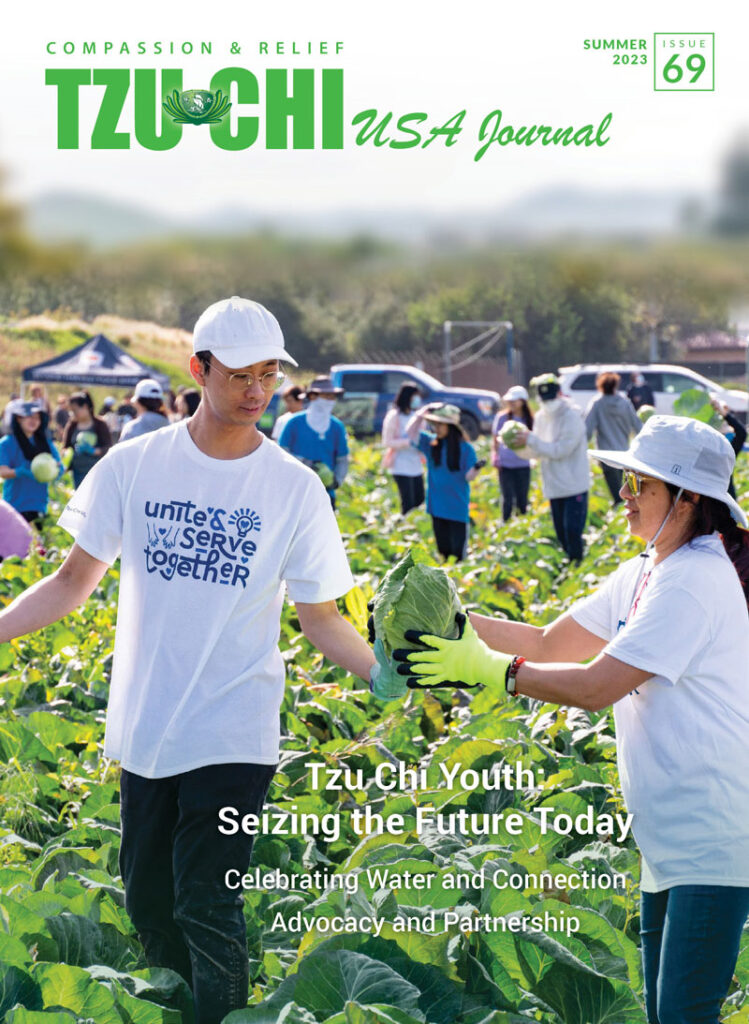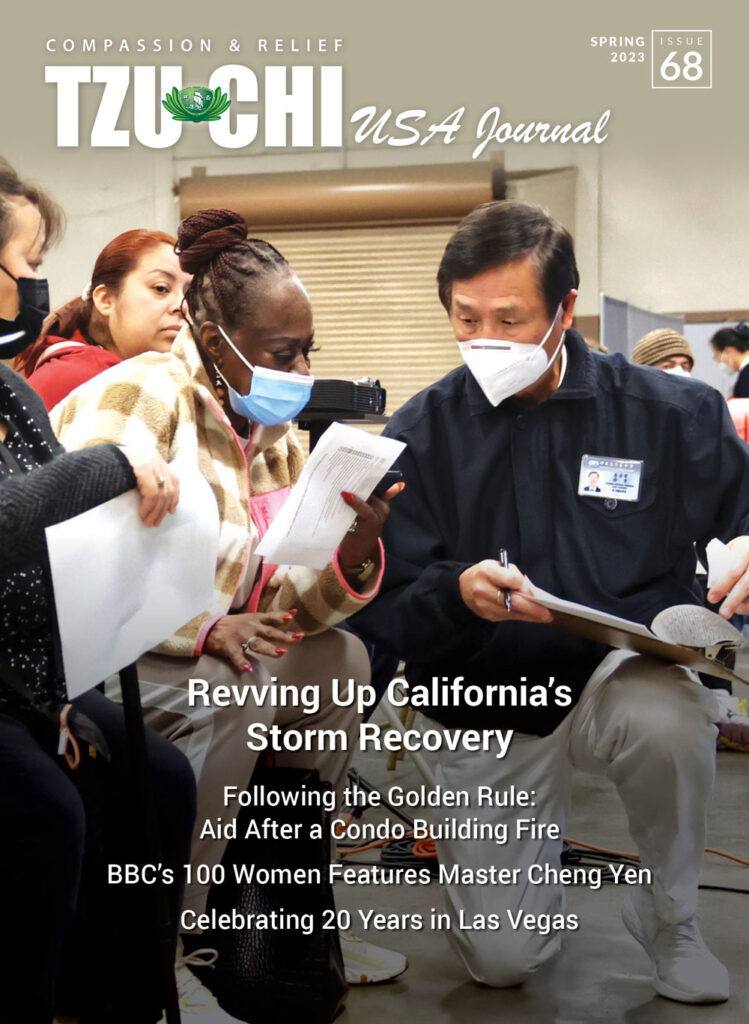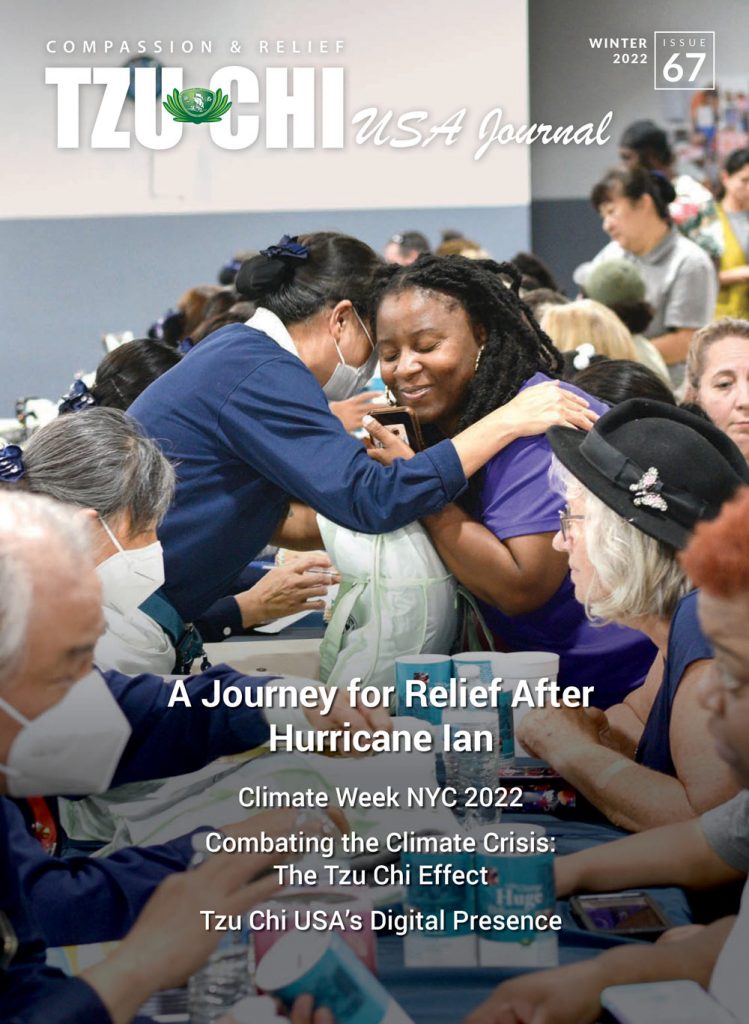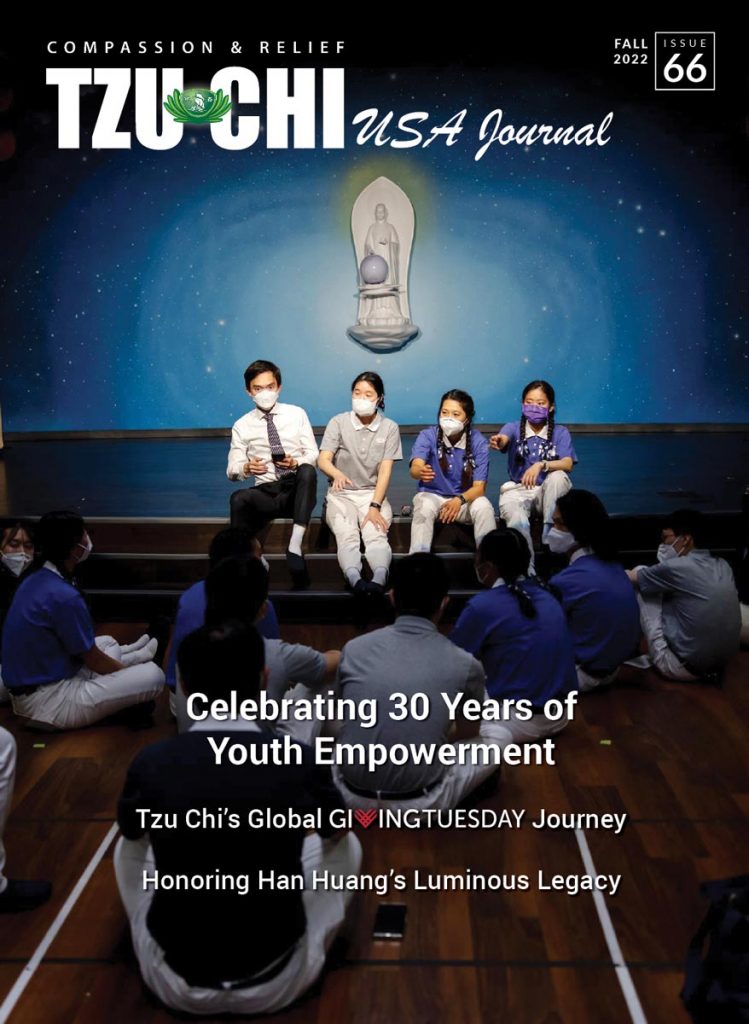Tzu Chi at COP26:
Calling for Individual Action on Climate Change
(Part 2)
Tzu Chi at COP26: Part 2 – Calling for Individual Action on Climate Change
By Ida Eva Zielinska
Photos by Tzu Chi SDG Action Team
Published #64 | Spring 2022 Issue
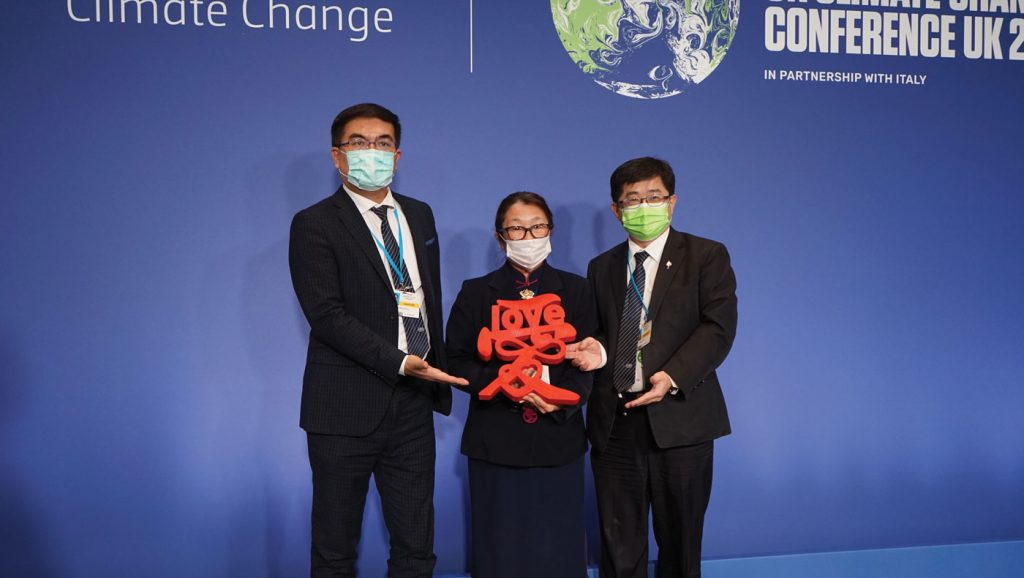
Tzu Chi’s missions are always rooted in love, care, and compassion for all in the spirit of one family and civil responsibility.
SHARE
4. We Need Action and Now
November 3 was Finance Day at COP26 as political, policy, and business leaders discussed the role of money in achieving net-zero emissions around the world. According to the UNFCCC, climate finance “seeks to support mitigation and adaptation actions that will address climate change.” However, discussions on this topic often become a tug-of-war between developed and developing countries, with the latter suffering continual disappointment, as one delegate expressed:
I represent the Congo Basin, the first ecological lung of the planet with the forests, with the peatland ecosystems. And today, we hold around 30 billion tons of CO2, the equivalent of three years of emissions of the planet. We still haven’t seen the 100 billion dollars promised [in 2015 with the Paris Agreement]. And today, they’re giving us other promises that they’re telling us will start from 2023, so there’s practically nothing at this stage.
Arlette Soudan-Nonault
Minister, Tourism and Environment
Republic of Congo
While frustrations may have been growing during official deliberations between nations, Tzu Chi’s delegation held its first solo press conference in COP26’s Blue Zone for those registered with the UNFCCC. “The Buddhist-Based Path to Carbon Neutrality” presentation put forward Tzu Chi’s action plan while sharing its achievements in emissions reduction over the years.
The panel introduced the Buddhist Tzu Chi Foundation and its over 55 years of experience in humanitarian aid. During that time, volunteers have witnessed a worsening trend of climate-related disasters. In recognition of the crisis, Tzu Chi aligns its four core missions of charity, medicine, education, and humanistic culture to simultaneously tackle the climate crisis, committing to a path to zero carbon by 2050.
Debra Boudreaux, Tzu Chi USA CEO, elaborated that Tzu Chi’s path to carbon neutrality is rooted in community engagement, social mobilization, health promotion, and education. The aim is to empower people by helping them understand how to participate in mitigating climate change, since “our actions today will weave the tapestry of tomorrow.”
Dharma Master Shih De Huang joined the press conference virtually, tuning in from the Jing Si Abode in Hualien, Taiwan, where Dharma Master Cheng Yen resides. She offered an overview of how Tzu Chi consistently strives to assist one and all with love and care in the spirit of one family, its ultimate aim to help the world attain peace. The charity’s mission is to create and enable environments where people have fundamental human rights and feel safe, thereby finding peace, which leads to broader social harmony.
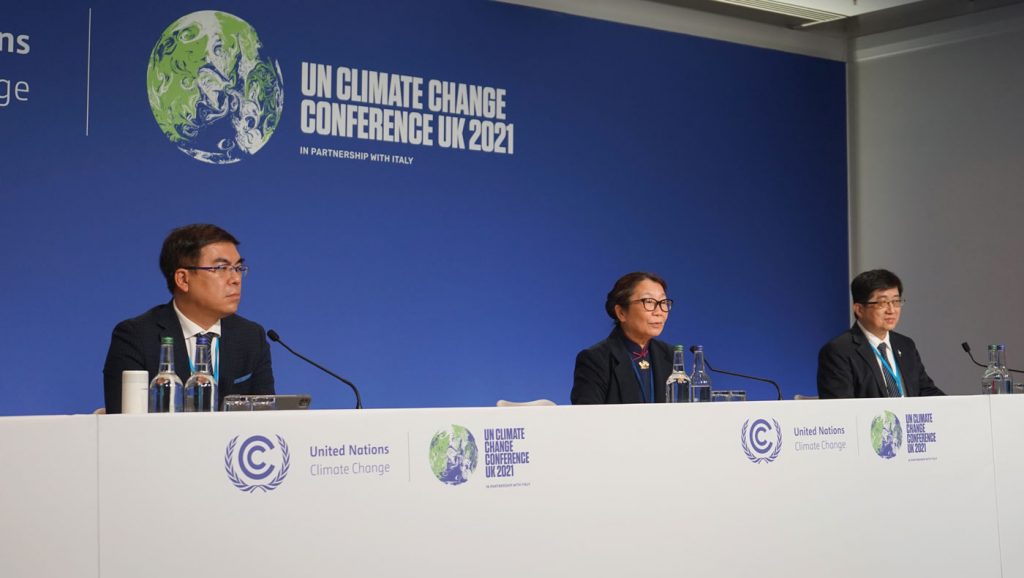
Master De Huang outlined Six Safeguard Strategies embedded in Tzu Chi’s disaster relief. They take into account how it’s a complex and interconnected system between people’s wellbeing and environmental protection efforts, thus progress sequentially:
- RESPONSE (answering physiological needs and offering psycho-trauma support)
- RECOVERY (providing livelihood assistance and helping educational systems recover)
- RECONSTRUCTION (supporting rebuilding and ecological restoration)
Through this holistic system, she highlighted that “when we’re helping people suffering, we can’t simply alleviate physical and material needs. Instead, we must also address their emotional and spiritual needs,” an approach with long-lasting impact:
One day, the materialistic aid that we provide will be used up, but the love and care will always be felt.
Dharma Master Cheng Yen
Founder
Buddhist Tzu Chi Foundation
Master De Huang also encouraged everyone to see COVID-19 as a lesson and said that we must not revert to the pre-pandemic status quo. Instead, we should create a more equitable society that aligns with faith values such as gratitude, respect, and love. And, as part of the lesson, “we have to rethink our relationship with nature.”
Dr. Ming-Nan Lin, Vice Superintendent of Dalin Tzu Chi Hospital in Taiwan, next explained that the Tzu Chi Medical Foundation’s institutions are actively working to reduce their carbon footprint and create a culture of environmental sustainability. Tzu Chi runs seven “green” hospitals in Taiwan, with nearly 4,500 beds and over 9,300 staff.
“Climate change will put burdens on human health, and health care will also produce some waste, some greenhouse gas to make the climate change even worse,” Dr. Lin said, “so in Tzu Chi hospitals we have many, many actions to reduce the climate impact.” The institutions are energy efficient, taking advantage of natural light and vegetation. They have systemic recycling measures in place, for instance, using greywater to flush toilets, saving 90,000 tons of water each year at Dalin Hospital alone. And, they promote ethical eating, providing only plant-based food on site.
Dr. Chi-Ming Peng, a weather reporter at the Buddhist Tzu Chi Foundation’s DaAi TV network in Taiwan and Chief Executive Officer at WeatherRisk Explore, next spoke about the importance of public education in climate action. He began his career as a meteorologist and professor, then became a TV weather presenter on the advice of Master Cheng Yen, who told him he could reach more people this way.
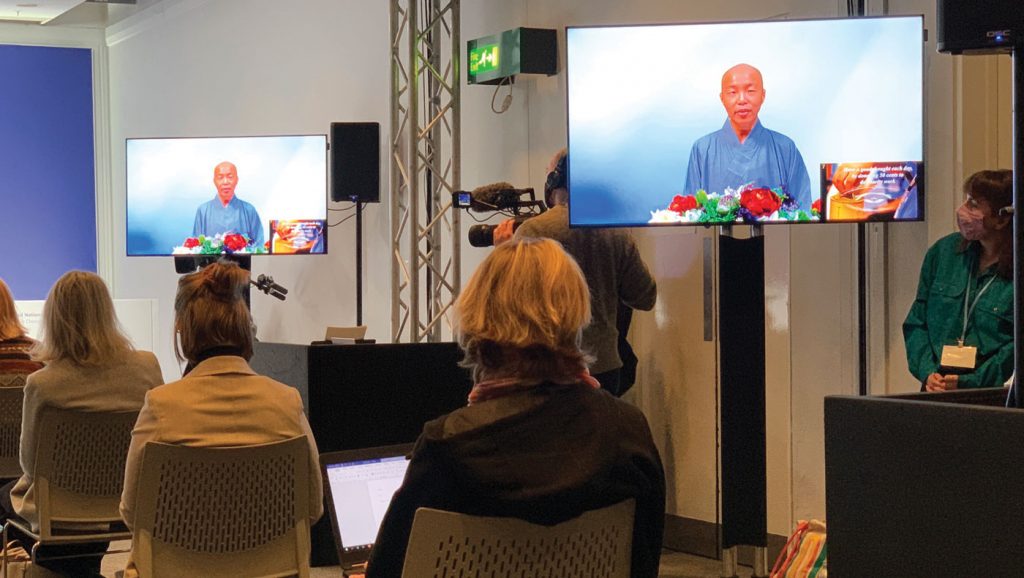
While reporting on natural disasters, he now has the opportunity to teach the public about climate change, which can empower and enhance local adaptive capacity, mobilize and strengthen resilience, and reduce vulnerability. At the same time, he promotes environmental actions such as recycling, and as a vegetarian himself, the benefits of abandoning the consumption of meat and animal products.
Boudreaux closed the press conference by saying that Tzu Chi’s practiced and promoted climate action path is garnering more and more interest at COP each year. People and organizations want to move towards implementation and are asking for a model and resources from Tzu Chi. The Foundation is thus preparing a framework for participation in global methane and carbon emission reduction plans, incorporating its 80/20 food security movement and advocacy of plant-based diets.
“Tzu Chi is ready to submit a proposal in that direction and start it from community education [and] implementation. This framework can become a roadmap that we can expand. Everyone, no matter if you’re a private partner, civil society, a faith-based organization, a non-profit, or even an individual, we all can engage, we all can participate,” she shared.
“Time goes by, but Mother Earth continues suffering. Is there a way we can find a common solution for every one of us to contribute, to participate? I’m going to throw that question to every one of you,” Boudreaux added, before summing up with words of inspiration:
We’re facing a continuing carbon emissions situation, but, as long as we’re confident, starting from ourselves, like our founder Master `Cheng Yen is teaching us, ‘Do what you say, say what you do,’ we set a model for people to follow. Without your actions, this conversation, this dialogue, will not be a success, so everyone, we count on your support, your engagement, and your participation.
Debra Boudreaux
Tzu Chi USA CEO
Tzu Chi SDG Action Team Lead
5. Exhibiting Tzu Chi’s Compassionate Technology
During the COP26 summit, delegates and visitors could explore the latest clean energy innovations and environmental technologies on display in the Green Zone for the general public.
Among exhibitors representing local government, businesses, non-profits, and others, a collective of faith-based organizations, including Tzu Chi, showcased Multi-Faith Action for Biodiversity.
Tzu Chi volunteers shared the Foundation’s environmental protection mission and “compassionate technology” that recycles plastic waste by transforming it into practical products.
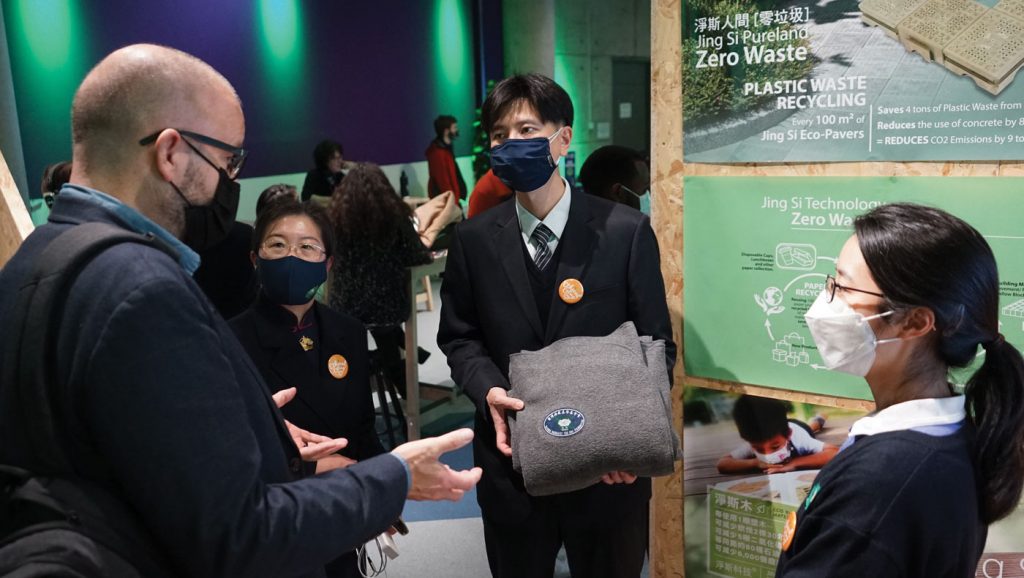
6. Youth Doing Their Part
On November 5, Youth and Public Empowerment Day at COP26, Tzu Chi held its third solo press conference, “Youth in Driving Climate Sustainability,” with two young presenters.
Ashley Yong, Tzu Chi’s Civil Society Youth Representative to the UN Department of Global Communication, kicked off the talk. She first spoke about Tzu Chi Youth volunteer activities that include recycling and street cleaning and are driven by the values of “common understanding, common consensus, and common action.”
Yong then described how Tzu Chi created the virtual “30 Day Challenge: My Sustainable Plate” during the pandemic, inviting youth to form sustainable living habits and help transform the food system. Tzu Chi partnered with Cred. Global, an organization that aims to help people live more mindfully every day, to launch the challenge whose driving philosophy is that “our actions are our future.” Participants used the Cred. Mobile app to choose one to three actions from a selected six of the 17 UN SDG goals to work towards daily for 30 days, documenting their progress in the app.
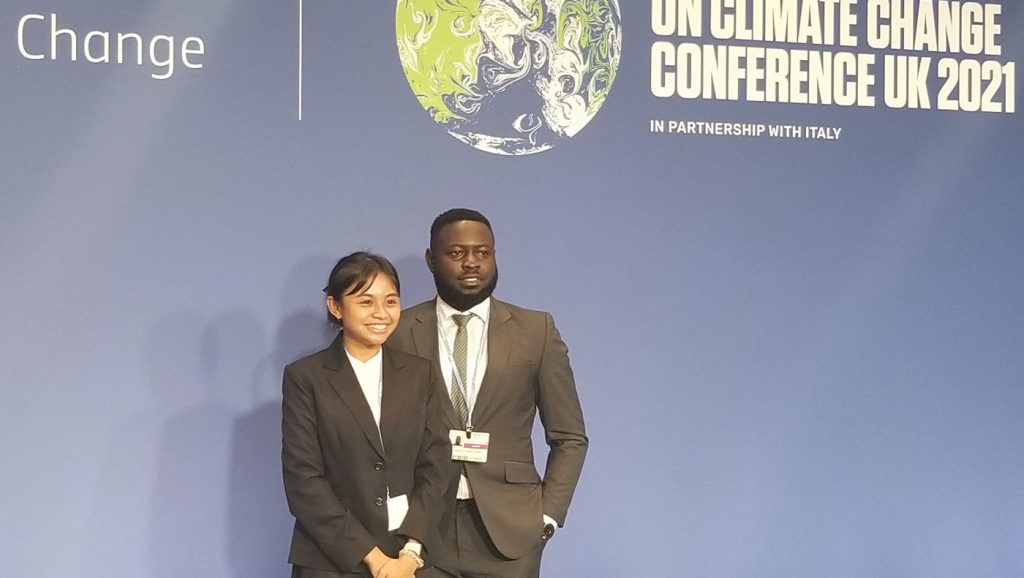
Isaac Kojo Yedonu Aboah, a social entrepreneur from Ghana, was the second presenter. His entrepreneurial journey began after his first exposure to climate change while at university. He initially focused on advocating a plant-based diet, then addressed Ghana’s flawed food supply chain that destroys 70% of food in the pathway from its rural production site to the urban areas where most people live. Considering how to grow in cities where land is limited, he started a hydroponics project.
Most recently, Aboah launched a transportation initiative in response to Ghana’s insufficient public transportation system and the glut of cars on the road. He co-founded and is CEO of Vielly, a shared mobility startup that “is reimagining urban mobility in Sub-Saharan Africa starting from Ghana” and “democratizing convenience for the ordinary commuter by making rides comfortable and safe without sacrificing affordability.” Aboah also aims to tackle how Africa is the dumping ground for outdated and sometimes toxic appliances, equipment, and vehicles, including polluting fossil fuel cars, as electric mobility takes hold in developed nations.
“If you can see in the world what young people are doing, it’s fascinating, right?” he commented. “Young people are taking the global climate agenda as an agenda for themselves. But why do you think that is happening? It’s because twenty years from now, we’re going to be bearing the repercussions of the actions that, unfortunately, the older generation has taken. That’s why we’re taking those actions now.” Aboah ended his talk with a plea:
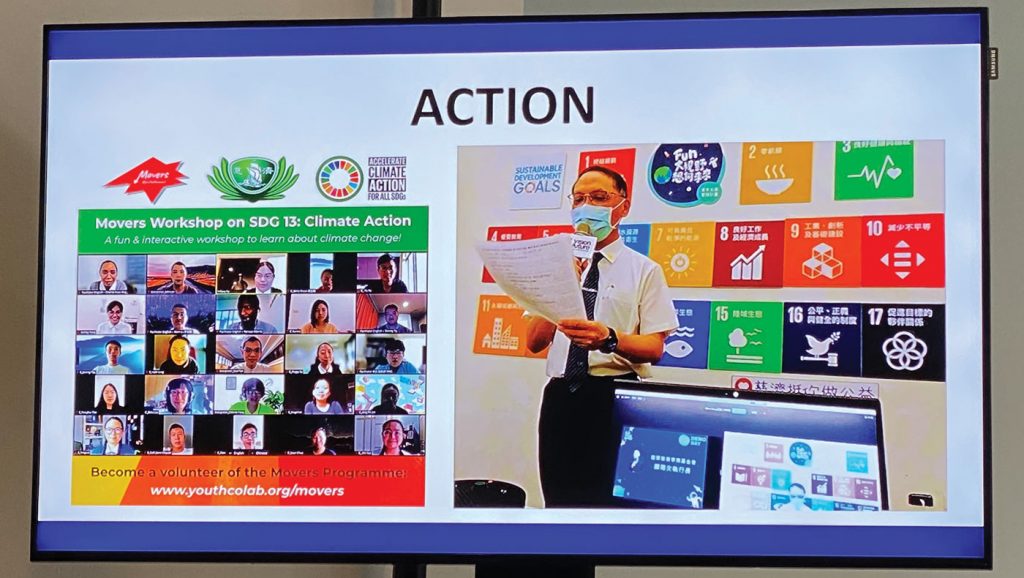
If only the older generation could take the same actions, and from commitments move to action [and] funding projects, I think that we’d have a world that goes beyond actually net-zero and goes to negative zero. The young people are doing all they can. The onus now lies on the older generation who has the power to [give] some of the power away to young people, to fund our projects, to support our innovation so that we can make the world a better place for all of us to livto live.
Isaac Kojo Yedonu Aboah
Co-Founder and CEO Vielly
Ashley Yong wrapped up the talk by seconding the call to action and support of youth initiative by the older generation, expressing appreciation for all who see the potential of young people, notably Tzu Chi. She highlighted that the Foundation invests a lot in youth empowerment from kindergarten to primary and high school through to university, providing space, accessibility, and resources for young people to grow and implement their ideas.
Yong described how Tzu Chi’s educational institutions provide 100% plant-based meals and begin building environmental awareness from an early age. As part of this, they instill recycling habits, encourage using personal utensils instead of disposable ones not to generate waste, and teach about climate change and natural disasters. All this combined is powerful:
[It teaches us] to solve the root cause that human beings are being too convenient and too comfortable with our current lifestyle, which will gradually create more waste, create more greenhouse gas emissions.
Ashley Yong
Tzu Chi’s Civil Society Youth Representative, UN DGC
Tzu Chi SDG Action Team Member
The panel’s parting message was one of encouragement to young and old: “Start from individual behavior. Don’t stop your action. Anything helps.”
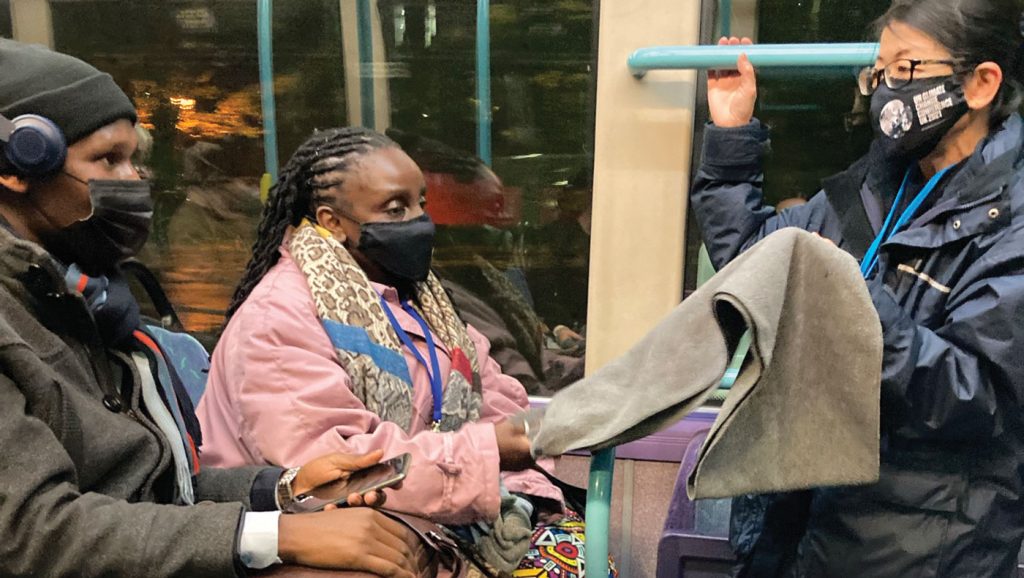
7. A Powerful Alliance to Spur Change
Representatives from the business and industry sectors also participated at COP26. On that front, Tzu Chi’s press conference on November 6, “Semiconductor Industry Climate Financing,” introduced climate action within the global electronic supply chain by Information and Communications Technology (ICT) companies and featured Tzu Chi’s DaAi TV weather reporter, Dr. Chi-Ming Peng.
Dr. Peng is a board member of the Taipei Computer Association in Taiwan. The collective is influential in the global ICT supply chain since its members produce most of the world’s mobile phones, iPhones, notebooks, keyboards, computer accessories, and a significant amount of software, hardware, semiconductors, and components. Feeling increasing pressure due to the climate change issue, the members asked Peng what action they could take.
Given that leading and giant global companies like Apple, Amazon, Microsoft, and Google are committed to carbon reduction, the ICT supply chain should also be carbon zero. Thus, in 2021, eight major companies launched the Taiwan Climate Partnership (TCP), an alliance that also connects them to 4,000 supply chain companies.
TCP members’ consensus is to push the government to announce a national net-zero path for 2050, demand green energy, create a sustainable supply chain, and conduct international ICT and semiconductor policy exchanges. They meet regularly online, hold round table discussions, issue policy statements, promote sustainable responsibility, and link international organizations.
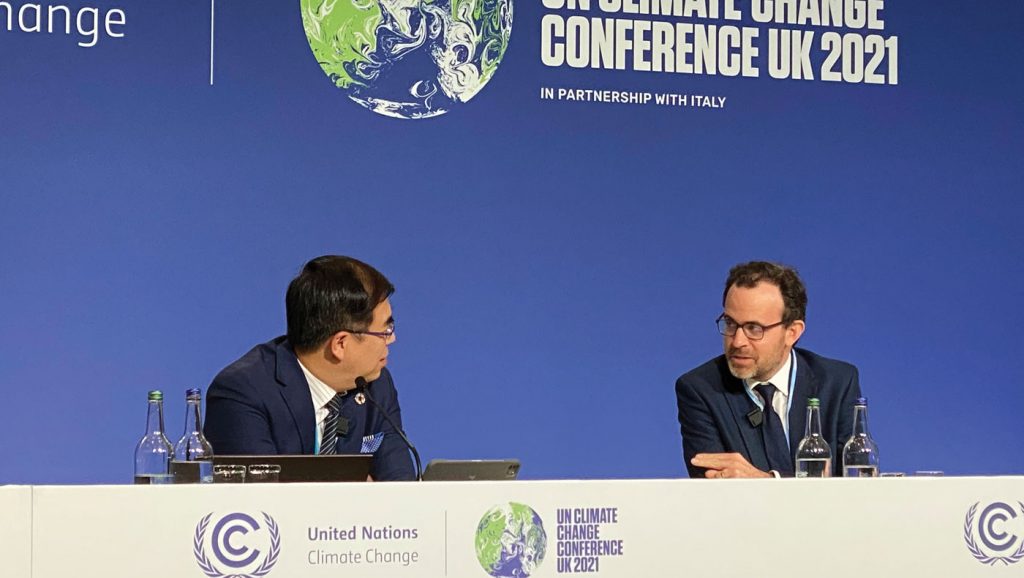
The industry applauded the joint venture, as Sam Kimmins, the Head of RE100, a global corporate renewable energy initiative bringing together hundreds of large and ambitious businesses committed to 100% renewable electricity, who joined the conference virtually, expressed:
RE100 has been growing rapidly, particularly in the Asia Pacific region, with Taiwan being one of the leading regions for growth of this movement. I’m delighted to see the progress made by the Taiwan Climate Partnership, reaching into their supply chain to drive progress towards 100% renewable electricity, not just for their own operations, but right through their supply chains.
Sam Kimmins
RE100 Head
Nick Molho, Executive Director at Aldersgate Group, was the second speaker. Aldersgate Group is a membership alliance of major businesses, civil society organizations, and academic institutions that drive policy change to build net-zero emissions and an environmentally sustainable and competitive economy in the UK and the EU.
Molho commended the TCP for its creation, goals, and activities and shared the lessons learned at Aldersgate Group, with advice on TCP’s membership growth as it plans to open up to other companies in 2022. He highlighted that progressive business groups must collaborate across borders and jurisdictions to advance the environmental and climate agenda.
Yancey Hai, Chairman of TCP and Delta Electronics, a TCP member, joined the conference virtually near the conclusion. According to the Sixth Assessment Report published by the Intergovernmental Panel on Climate Change (IPCC), Hai conveyed that the world will likely surpass 1.5°C of global warming by 2040. He described this as a “Code-Red” for humanity which spurred the establishment of TCP.
The TCP aims to advocate the net-zero goal to the supply chain in actual practice while connecting with the latest climate trends through close cooperation with international organizations such as COP, the IPCC, and the foreign chambers of commerce in Taiwan.Our hope is that the TCP can spur further participation in climate actions through mutual connection and encouragement. We do believe that unity is strength and through international exchanges and Since the earthquake, many people live in initiatives we can pursue sustainable makeshift tents along the side of the road in the value together.
Yancey Hai
Chairman, Taiwan Climate Partnership
8. Marching for Climate Justice
In his capacity as a DaAi TV presenter, Dr. Chi-Ming Peng, alongside Tzu Chi USA’s news team, also took to the streets on November 6 to join the thousands of people participating in a march to mark the Global Day of Action for Climate Justice. The COP26 Coalition organized the event, being a UK-based civil society alliance of individuals and groups mobilizing around climate justice since it’s an issue of escalating global concern:
The impacts of climate change will not be borne equally or fairly, between rich and poor, women and men, and older and younger generations. Consequently, there has been a growing focus on climate justice, which looks at the climate crisis through a human rights lens and on the belief that by working together, we can create a better future for present and future generations.
“Climate Justice”
United Nations Blog, May 19, 2019
The number of participants at the march was clear evidence of how much people care about the future. Dr. Peng reported that while initially, 50,000 people were estimated to join the event, the turnout appeared to be closer to 100,000 people demanding political leaders to act now. They each had their reason to be there.
Jean Su, Energy Justice Program Director and Attorney with the Center for Biological Diversity in Washington DC, which works to secure a future for all species on the brink of extinction, was there for that cause, saying, “We’re facing a really devastating extinction crisis right now. By 2070, we’re going to see one-third of all our species on the planet wiped out because of climate change, so we need to prevent that right now, and one of the main things that the US President can do is stop fossil fuel extraction.” Asked if she believed marching was worthwhile, Su said that it was, absolutely, and many obviously felt the same way:
You know, this is COP26, so we’ve had 26 years of demanding political change. And you see the numbers, the thousands of people on the street right now, from very, very young, to very, very old, and that means that all of the planet is desperately asking our political leaders to make a change because absolutely everything needs to change.
Jean Su
Energy Justice Program Director and Attorney
Center for Biological Diversity
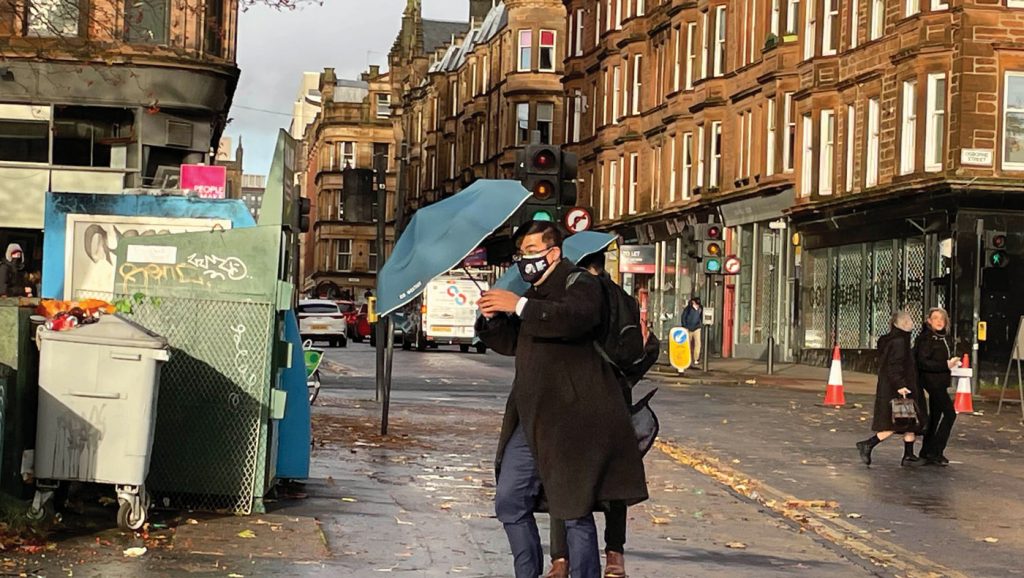
Perhaps a participant from the IONA Community in Glasgow, a dispersed Christian ecumenical community working for peace and social justice, summed the significance of expressing one’s voice best:
I’m 70, so I could say it’s not important to me, but I have godchildren, relatives’ children, and we need to save the planet for our children, for our future.
Climate March Participant
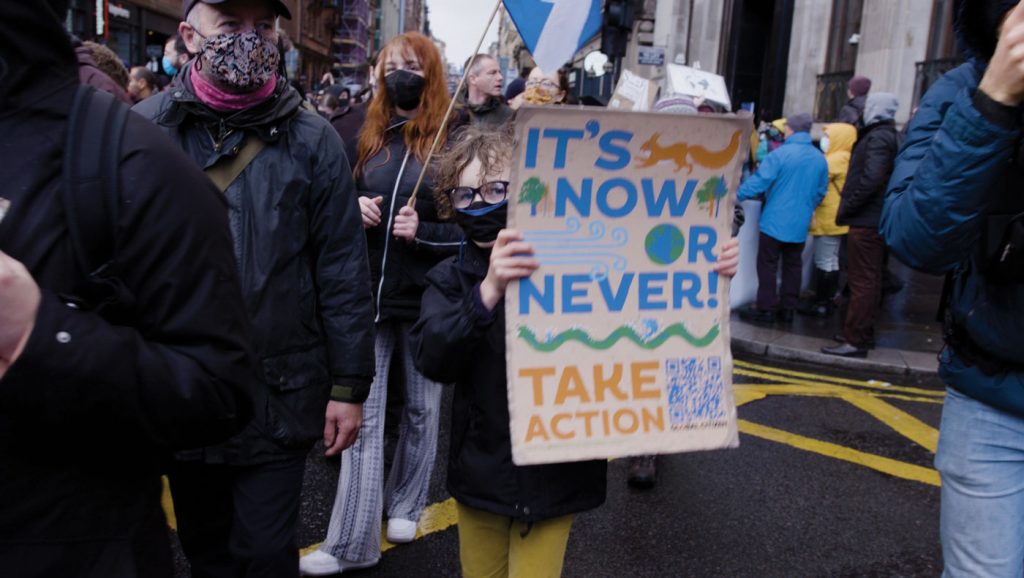
SHARE:
Topics
- 1. Nature in Peril
- 2. A Vigil to Set the Tone
- 3. The Earth Doesn’t Belong to Humanity Alone
- 4. We Need Action and Now
- 5. Exhibiting Tzu Chi’s Compassionate Technology
- 6. Youth Doing Their Part
- 7. A Powerful Alliance to Spur Change
- 8. Marching for Climate Justice
- 9. Learning About Scotland’s Renewable Energy Success
- 10. The Role of Land
- 11. Africa’s Intensifying Food Crisis
- 12. Faith-Based Climate Action

